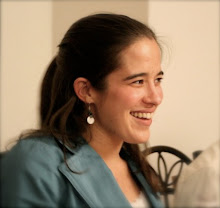I recently came across the quote below in a book excerpt I was reading online. Since I am spending this week on family vacation as a tourist, and I am then traveling to Ecuador for a month rotation at a mission hospital as a working visitor, thoughtfully comparing the two different types of visiting other locales seemed appropriate. I hope it also encourages me to reflect on how I choose to travel.
Mark Buchanan writes in Your Church is Too Safe:
"[At some point,] we stopped calling people who went on trips travelers and started calling them tourists. Traveler literally means 'one who travails.' He labors, suffers, endures. A traveler—a travailer—gets impregnated with a new and strange reality, grows huge and awkward trying to carry it, and finally, in agony, births something new and beautiful. To get there, he immerses himself in a culture, learns the language and customs, lives with the locals, imitates the dress, eats what's set before him. He takes risks, some enormous, and makes sacrifices, some extravagant. He has tight scrapes and narrow escapes. He is gone a long time. If ever he returns, he returns forever altered ….
"[At some point,] we stopped calling people who went on trips travelers and started calling them tourists. Traveler literally means 'one who travails.' He labors, suffers, endures. A traveler—a travailer—gets impregnated with a new and strange reality, grows huge and awkward trying to carry it, and finally, in agony, births something new and beautiful. To get there, he immerses himself in a culture, learns the language and customs, lives with the locals, imitates the dress, eats what's set before him. He takes risks, some enormous, and makes sacrifices, some extravagant. He has tight scrapes and narrow escapes. He is gone a long time. If ever he returns, he returns forever altered ….
"A tourist, not so. Tourist means, literally, 'one who goes in circles.' He's just taking an exotic detour home. He's only passing through, sampling wares, acquiring souvenirs. He tastes more than eats what's put before him. He retreats each night to what's safe and familiar. He picks up a word here, a phrase there, but the language, and the world it's embedded in, remains opaque and cryptic, and vaguely menacing. He spectates and consumes. He returns to where he's come from with an album of photos, a few mementos, a cheap hat. He's happy to be back. He declares there's no place like home."

Moving from the relaxation of vacation with its reading, swimming, and playing games to the responsibility of caring for patients in my second language, writing medical notes in the chart and communicating on rounds in Spanish, and learning to treat tropical diseases rarely seen in the States is quite the shift. Still, despite its necessary short-term nature (required in residency training programs nationwide), I definitely hope to create/continue patterns of traveling in the first way described.
Indeed, I look forward to some of the changes. I remember feeling in my semester in Costa Rica in college that Spanish was sometimes more my heart language than English; that I could say certain things better - more precisely - in Spanish; that I acquired an altered personality, style of interaction, and linguistic prosody (the musicality of speech) when I switched to Spanish; that with my affectionate family, ability to tan, and short stature, I seemed to fit so naturally with Latin culture's demonstrative nature and its generally smaller, darker-skinned people. I look forward to the chance to flip the coin (myself), to show this other side of me that always exists but now only shows in my much-enjoyed encounters with Spanish-speaking patients at work.
But I also have traveled enough to know that journeying brings its own challenges. Flexibility is required of an international traveler, and this may not naturally jive well with my desire to plan out the details of my future. Some cultural differences do not come naturally, and humility is an asset in evaluating the way that cultural differences compare to my home culture. Loneliness can be a frequent companion separate from my usual surroundings of familiar friends, coworkers, family, and church. Even the language switch, as fun as I find it, can demand enough mental effort to bring me to exhaustion by the end of the day, not to mention the challenges of a different medical environment.
from: http://my-bellavita.com/fine-print/adjusting-to-expat-life-in-italy-riding-out-the-culture-curve/
However, if Jesus is my ultimate example of one living a cross-cultural experience and dwelling with a people who are "other," surely I need to be willing to dwell where I am (even for a month) in a way that may cost me in order to love others well. It remains to be seen what this will look like, but I want to go into the experience willing to be flexible, to change the way I naturally or habitually do things, to form new friendships even if I am transient, to learn a language, culture, gestures, history, economy, and politics not my own. My hope is that through traveling and encountering people who are "other" and yet still God's children as much as I am, I may learn more of what it is to journey well through life, whether or not it gains me more stamps in my passport.


No comments:
Post a Comment
Note: Only a member of this blog may post a comment.